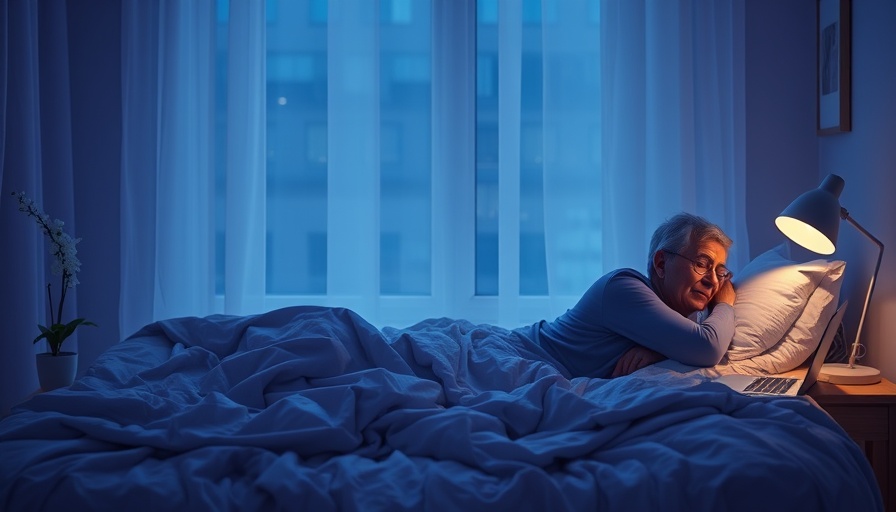
Understanding the Link Between Technology and Sleep Health in Seniors
As technology becomes an integral part of daily life, its effects on sleep health, especially among the elderly, are gaining scholarly attention. A recent study from Sweden examines how technology use influences sleep among older adults aged 60 and above. With the increasing integration of digital devices in this demographic, understanding these implications is vital to improving their quality of life.
The Study's Key Findings: A Mixed Bag
The Swedish National Study on Aging and Care included 436 participants who provided insights through questionnaires addressing their sleep patterns, internet usage, and technology-related attitudes. Surprisingly, older adults who frequently use the internet and engage with screens before bedtime reported better sleep health scores compared to their less-engaged counterparts. Specifically, technology enthusiasm was positively correlated with better sleep, while technology anxiety appeared to hinder it. These mixed results suggest that usage patterns, rather than mere participation in technology, play a crucial role in sleep health.
Benefits of Digital Social Participation
One of the standout discoveries of the study was that engaging digitally correlates with improved sleep satisfaction, duration, and efficiency. This underscores the notion that digital social participation (DSP) can serve as a supportive tool for mental well-being among older adults. Encouraging positive digital engagement can mitigate feelings of loneliness, which often plague this age group.
Technology Anxiety: A Double-Edged Sword
Despite the benefits, the presence of technology anxiety undermined sleep health metrics. Older adults expressing anxiety towards technology reported challenges with timing and overall sleep satisfaction. Addressing these anxiety levels will be essential in creating environments that foster healthy sleep practices while maximizing the benefits of technology.
Looking Ahead: Embracing Technology in Care
The findings suggest that embracing technology while being mindful of its potential downsides could be imperative for enhancing sleep health in older populations. Caregivers, family members, and communities need to encourage sensible technology use, focusing on fostering enthusiasm while alleviating anxiety associated with digital tools.
Take Action: Fostering Healthy Digital Habits
Incorporating simple practices such as setting screen-free times before sleep and promoting positive digital interactions can greatly influence sleep quality. By addressing both the advantages and the fears of technology, communities and caregivers can strategize to enhance health outcomes for older adults.
 Add Row
Add Row  Add
Add 




Write A Comment